Related Research Articles
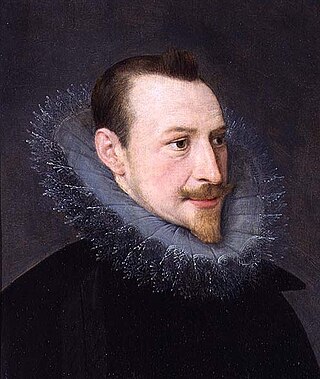
Edmund Spenser was an English poet best known for The Faerie Queene, an epic poem and fantastical allegory celebrating the Tudor dynasty and Elizabeth I. He is recognized as one of the premier craftsmen of nascent Modern English verse, and he is considered one of the great poets in the English language.

Tom Bombadil is a character in J. R. R. Tolkien's legendarium. He first appeared in print in a 1934 poem called "The Adventures of Tom Bombadil", which also included The Lord of the Rings characters Goldberry, Old Man Willow and the Barrow-wight, from whom he rescues the hobbits. They were not then explicitly part of the older legends that became The Silmarillion, and are not mentioned in The Hobbit.

Isaac Barrow was an English Christian theologian and mathematician who is generally given credit for his early role in the development of infinitesimal calculus; in particular, for proof of the fundamental theorem of calculus. His work centered on the properties of the tangent; Barrow was the first to calculate the tangents of the kappa curve. He is also notable for being the inaugural holder of the prestigious Lucasian Professorship of Mathematics, a post later held by his student, Isaac Newton.
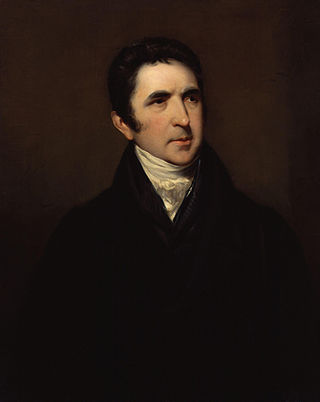
Sir John Barrow, 1st Baronet, was an English geographer, linguist, writer and civil servant best known for term as the Second Secretary to the Admiralty from 1804 until 1845.
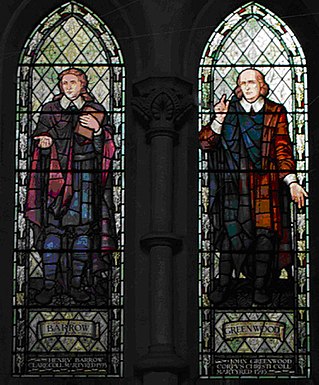
Henry Barrow was an English Separatist Puritan, or Brownist, who was executed for his views. He led the London underground church from 1587 to 1593; spent most of that time in prison; and wrote numerous works of Brownist apologetics, most notably A Brief Discoverie of the False Church.
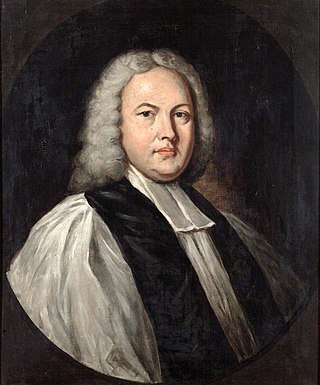
William Warburton was an English writer, literary critic and churchman, Bishop of Gloucester from 1759 until his death. He edited editions of the works of his friend Alexander Pope, and of William Shakespeare.
Thomas Lodge was an English writer and medical practitioner whose life spanned the Elizabethan and Jacobean periods.

James Syme was a Scottish pioneering surgeon.

Gervase Babington (1549/1550–1610) was an English churchman, serving as the Bishop of Llandaff (1591–1594), Bishop of Exeter (1594–1597) and Bishop of Worcester in 1597–1610. He was a member of the Babington family and held influential offices at the same time as his cousin Anthony Babington was executed for treason against Elizabeth I as part of the Babington Plot.

Thomas Bonham v College of Physicians, commonly known as Dr. Bonham's Case or simply Bonham's Case, was a case decided in 1610 by the Court of Common Pleas in England, under Sir Edward Coke, the court's Chief Justice, in which it was ruled that Dr. Bonham had been wrongfully imprisoned by the College of Physicians for practising medicine without a licence. Dr. Bonham's attorneys had argued that imprisonment was reserved for malpractice not illicit practice, with Coke agreeing in the majority opinion.

Sir Clement Higham MP JP PC of Barrow, Suffolk, was an English lawyer and politician, a Speaker of the House of Commons in 1554, and Chief Baron of the Exchequer in 1558–1559. A loyal Roman Catholic, he held various offices and commissions under Queen Mary, and was knighted in 1555 by King Philip, but withdrew from politics after the succession of Queen Elizabeth I in 1558.
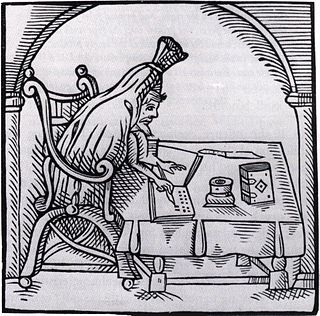
Robert Greene (1558–1592) was an English author popular in his day, and now best known for a posthumous pamphlet attributed to him, Greene's Groats-Worth of Witte, bought with a million of Repentance, widely believed to contain an attack on William Shakespeare. Greene was a popular Elizabethan dramatist and pamphleteer known for his negative critiques of his colleagues. He is said to have been born in Norwich. He attended Cambridge where he received a BA in 1580, and an M.A. in 1583 before moving to London, where he arguably became the first professional author in England. He was prolific and published in many genres including romances, plays and autobiography.

Thomas Holyoake was an English royalist soldier, physician, clergyman and lexicographer.
Richard Capel (1586–1656) was an English nonconforming clergyman of Calvinist views, a member of the Westminster Assembly, and for a period of his life a practicing physician.
Philip Francis was an Anglo-Irish clergyman and writer, now remembered as a translator of Horace.
Francis Anthony was a 16th-century physician and chemist. His father, Derrick Anthony, was a goldsmith in London, employed in the jewel office of Queen Elizabeth. He attended the University of Cambridge, receiving a master of arts degree in 1574. He studied the theory and practice of chemistry, leaving Cambridge at the age of 40. In 1598, he sent abroad his first treatise concerning the excellency of a medicine drawn from gold.

Dr Alexander Hunter was a Scottish physician, known also as a writer and editor.
Timothie Bright, M.D. (1551?–1615) was an English physician and clergyman, the inventor of modern shorthand.
Peter Shaw (1694–1763) was an English physician and medical author.
Leonard Mascall was an English author and translator.
References
![]() This article incorporates text from a publication now in the public domain : "Barrow, Philip". Dictionary of National Biography . London: Smith, Elder & Co. 1885–1900.
This article incorporates text from a publication now in the public domain : "Barrow, Philip". Dictionary of National Biography . London: Smith, Elder & Co. 1885–1900.